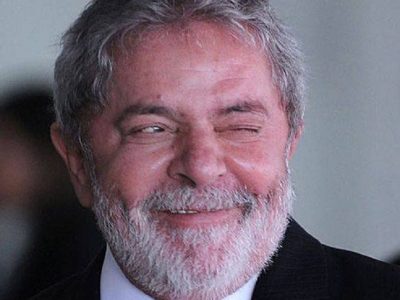Lula Just Became the First BRICS Leader to Publicly Condemn Russia’s Special Operation

All Global Research articles can be read in 51 languages by activating the Translate Website button below the author’s name.
To receive Global Research’s Daily Newsletter (selected articles), click here.
Follow us on Instagram and Twitter and subscribe to our Telegram Channel. Feel free to repost and share widely Global Research articles.
***
Newly re-elected three-time Brazilian leader Luiz Inácio Lula da Silva, who’s popularly known as Lula, just shattered the foreign policy expectations of his multipolar base by becoming the first BRICS leader to publicly condemn Russia’s special operation. Unlike his predecessor Jair Bolsonaro who refused to do so and thus received a lot of flak in the US-led Western Mainstream Media (MSM) for his pragmatism, Lula crossed the line and even compared Russia’s involvement in Ukraine to the US’ in Venezuela.
In remarks that he made while in Buenos Aires on Monday, one of the literal founders of BRICS shockingly declared that “In the same way that I am against territorial occupation, as Russia did to Ukraine, I am against too much interference in the Venezuelan process.” Quite clearly, he was implying that Russia’s military efforts to restore the integrity of its national security red lines in Ukraine after NATO crossed them there are morally equivalent to the US’ unprovoked aggression against Venezuela.
Lula is of course entitled to his opinion and has the legal right as the head of the Brazilian state to publicly express his views about what’s indisputably at this point become a proxy war between the US-led West’s Golden Billion and the jointly BRICS– & SCO-led Global South of which Russia is a part. That said, so too do observers also have the right to critique his unexpectedly sharp attack against Moscow’s special operation, especially since it betrays the expectations of his multipolar base at home and abroad.
Brazil should seek to pragmatically balance between both de facto New Cold War blocs following the path pioneered by fellow BRICS member India over the past year instead of its leader inserting himself into the debate like Lula just did to make a hyper-partisan statement that’ll obviously offend his Russian counterpart. There’s little doubt that Lula is domestically aligned with the US’ ruling Democrats’ liberal-globalist ideology, but he still at least publicly claims to share Russia’s multipolarinternational one too.
He could have expressed a much more balanced approach towards this conflict if he wanted to exactly as his counterparts in fellow BRICS members China, India, and South Africa have done over the past year. Instead, the same man who’s famous for his masterful use of words chose to compare Russia’s special operation in Ukraine to the US’ Hybrid War on Venezuela, which makes one wonder whether this was a rare faux pas from that famous public speaker or a deliberately unfriendly statement.
Whatever his true intentions might have been, there’s no denying that his remark sends mixed signals, especially since it came on the same day that he declared Brazil’s interest in creating a common currency for BRICS. He’ll soon be headed for the US early next month though to rub shoulders with his country’s “frenemy” with whom it’s locked in a relationship of complex economic and military interdependence and which was responsible for his jailing a few years back.
It’s indeed possible that Brazil can pragmatically balance between the US-led West’s Golden Billion and the jointly BRICS- and SCO-led Global South of which it’s a part just like India has successfully done, but for that to happen, then Lula’s rhetoric should replicate Prime Minister Narendra Modi’s wherein he declines to publicly condemn Russia’s special operation, let alone compare it to naked US imperialism. Hopefully this was just a rare faux pas by Lula and not a signal of what’s to come with his foreign policy.
*
Note to readers: Please click the share buttons above or below. Follow us on Instagram and Twitter and subscribe to our Telegram Channel. Feel free to repost and share widely Global Research articles.
This article was originally published on Andrew Korybko’s Newsletter.

